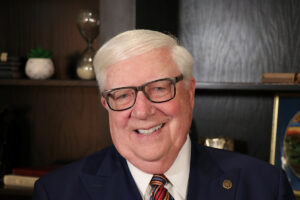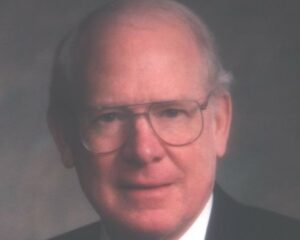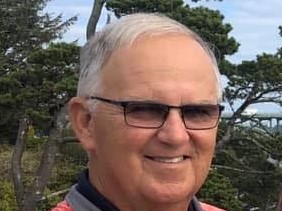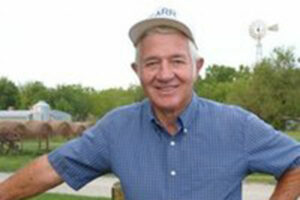Interview of Edward Hammond, April 1, 2025
Interviewed by Mark Tallman
Hammond's interview describes in detail how Fort Hays State University changed and adapted during his 30 year tenure in response to actions of the Kansas Board of Regents and the Kansas Legislature. During that time Dr. Hammond wrote two strategic 10 year plans to accommodate the changing environment for higher education in Kansas. The first plan emphasized "high tech, high touch." The curriculum changed to incorporate technology, even teaching art as graphic design on computers. The goal was for all 1990 graduates to be computer literate, They put computer labs in all the dorms. Show More FHSU had declining enrollments in the 10 years prior to Hammond's presidency. Hammond believed If you are going to move into an institution and make change, select strategies that promote the change. Smaller classes, (high touch) created a distinction with the other schools. The next hurdle was responding to changes in how tuition is applied. In 2000 KBOR changed the formula and now institutions can keep whatever they bring in from tuition. The other change was adding 19 community colleges, Washburn University and the technical schools under the regents' control. The regents emphasized access and serving as many Kansans as they could. FHSU then needed to grow to keep up with this change because funding was based on enrollment. Hammond decided to emphasize distance learning and low tuition to meet these changes. While other schools raised tuition, FHSU decided to be at the low tuition end with a quality product. FHSU moved from "high tech, high touch" to "affordable success" using the distance learning technology to expand their enrollment. Hammond convinced rural telephone carriers to provide mostly free internet services, wired and cellular. By 2010 they had more distance learning than all the other schools combined. They began recruiting Chinese students in 1999--achieving 15,000 students in about 10 years. The China program helped lower the costs for Kansas students. Hammond attributes his success at FHSU to the team of faculty and admininstrators. FHSU is still serving 50% of the high school students despite the loss of population in the western part of the state. The goal is still to grow the university in ways that add value, such as allowing Colorado students to attend as in-state student. Show Less




